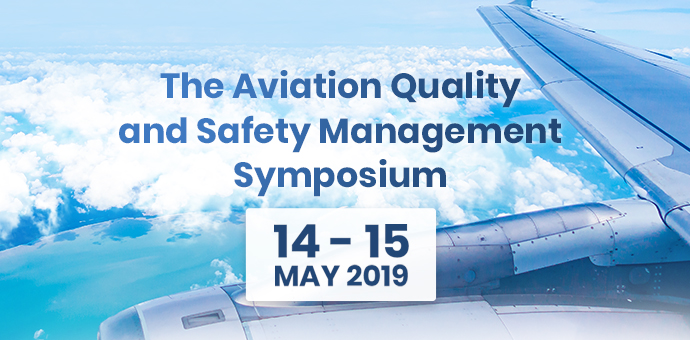ICAO is proposing the Introduction of Mandatory Aviation English in a Maintenance and CAMO environment
Find out more during the forthcoming symposium with a presentation by
Yousaf Hashmi – Theoretical Knowledge Instructor – Emirates Flight Training Academy| Engineering & Operations Directorate
The Aviation Quality & Safety Management Symposium 14 – 15 May 2019 Sofia Bulgaria
If you are engaged in Aviation Quality & Safety Management this is your one “must attend” event of the year.
Forthcoming ICAO expectations regarding Aviation English in a Maintenance and CAMO environment
Presented by Yousaf Hashmi
When: Wednesday 15th May – 15:30 – 16:00: Session 8
Where: Holiday Inn Hotel, Sofia, Bulgaria
Introduction
Aviation Safety experts worldwide continuously seek to identify means of improving safety and mitigate potential hazards. In the past, almost three decades, a lot of focus shifted to human factors. One of the critical elements of which remains communications.
It’s been almost two decades since ICAO implemented Language Proficiency Requirements (LPRs) for pilots and air traffic controllers. There is an increasing focus for the need of defining language proficiency requirements for other aviation professions.
English being the Lingua Franca in aviation, therefore the most frequently used language in maintenance and technical documents. But often it is not the native language of the maintenance personnel using these documents. Inaccurate translations also pose a hazard and leaves room of misinterpreting complex maintenance procedure or instruction.
In 1996 ICAO identified use of simplified technical English in published maintenance information, however, this profession was not added in the initial efforts of LPRs. Studies conducted for ICAO, EASA and FAA, provides evidence that accidents and incidents have occurred where a low language proficiency of maintenance staff was a primary or secondary contributory factor.
Maintenance personnel are exposed to English during training, examinations and workplace. They read manuals, write technical reports and communicate with colleagues, supervisors, and inspectors. They also interact with pilots. RTC is relatively a lesser element in maintenance, but reading and writing, especially basic technical writing are language elements that are in addition to the Pilots and Controller LPRs.
Several NAAs have taken the lead and have introduced LPRs for maintenance staff. Language testing has been mandated prior to issuance of Part 66 licence to LAMEs.
INTERNATIONAL CIVIL AVIATION ENGLISH ASSOCIATION
ICAEA is on-board with ICAO in defining the LPRs for maintenance personnel. Training and testing requirements are being worked upon. The industry needs to be pro-active and consider language proficiency during selection, training and prior to issuance of licences. The non-licenced AMTs need to also possess a minimum language ability to ensure safety. Cost-benefit analysis of being pro-active need not to be ignored. www.icaea.aero
Here is your opportunity to engage with a professional who has decades of experience and is able to rise to the challenge of any Airport Security issue and to share an understanding regarding best practice solutions.
For event details please see our event brochure here
Book now for Special Combined Rate for Symposium and Hotel Accommodation* = 395 Euro. Every additional Delegate from the same company – Attendance + Hotel Accommodation 295 Euro. For more information please visit our page or email events@sassofia.com.
*Note regarding Hotac – If the Venue Hotel is not available, we will select the nearest possible hotel to the event and organise transport to and from the event hotel.
Tags:
Forthcoming ICAO expectations regarding Aviation English in a Maintenance and CAMO environment, ICAO, The Aviation Quality and Safety Management Symposium




